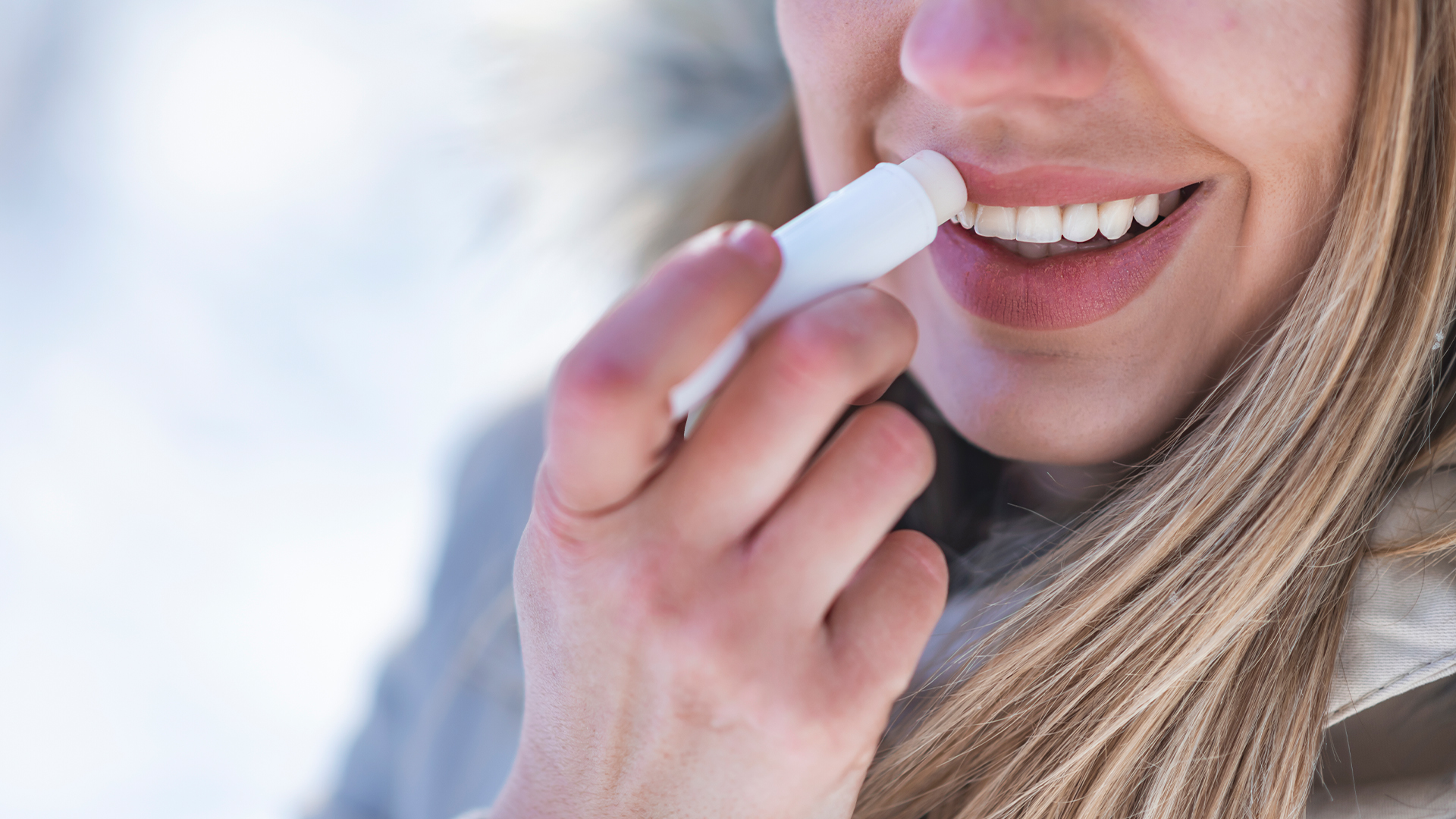Why do lips get so chapped in winter?
The reason your lips get chapped in cold weather lies in their unique anatomy.

Get the world’s most fascinating discoveries delivered straight to your inbox.
You are now subscribed
Your newsletter sign-up was successful
Want to add more newsletters?

Delivered Daily
Daily Newsletter
Sign up for the latest discoveries, groundbreaking research and fascinating breakthroughs that impact you and the wider world direct to your inbox.

Once a week
Life's Little Mysteries
Feed your curiosity with an exclusive mystery every week, solved with science and delivered direct to your inbox before it's seen anywhere else.

Once a week
How It Works
Sign up to our free science & technology newsletter for your weekly fix of fascinating articles, quick quizzes, amazing images, and more

Delivered daily
Space.com Newsletter
Breaking space news, the latest updates on rocket launches, skywatching events and more!

Once a month
Watch This Space
Sign up to our monthly entertainment newsletter to keep up with all our coverage of the latest sci-fi and space movies, tv shows, games and books.

Once a week
Night Sky This Week
Discover this week's must-see night sky events, moon phases, and stunning astrophotos. Sign up for our skywatching newsletter and explore the universe with us!
Join the club
Get full access to premium articles, exclusive features and a growing list of member rewards.
You get ready to leave the cozy warmth of your house and brace for the winter's harsh weather — and, of course, you can't step foot outside without pocketing your trusted lip balm.
But have you ever wondered why your lips get dry in the winter?
The answer lies in lips' unique anatomy, Dr. Luke Powles, a London-based physician and associate clinical director for Bupa Health Clinics, told Live Science in an email. "The skin on your lips has a thinner protective barrier compared to the rest of the skin on your face, which makes it more susceptible to dehydration," he said.
Starting at the "vermillion border" — the often-sharp line that demarcates lip tissue from the rest of the face — the tissue resembles the mucous membrane that lines the inside of the mouth. It consists of only three to five layers of tissue and does not contain any of the hair follicles or sweat glands found elsewhere on the face, according to the medical resource StatPearls.
Related: Can lip balm make your chapped lips worse?
In fact, "the cellular layers of skin on your face are up to six times thicker than found on your lips," Powles said. "Your lips also have fewer oil glands compared to other parts of the body."
This comes into play during the winter, when the air outside gets colder and less humid and people switch on the heat in their homes and businesses. This continuous exposure to dry air dehydrates the delicate skin of the lips, causing it to crack, peel and bleed — a condition scientifically known as common cheilitis, Powles said.
Get the world’s most fascinating discoveries delivered straight to your inbox.
While it's tempting to try to ease the discomfort of common cheilitis by licking your lips — and we sometimes do this without thinking — this may actually aggravate the problem. That's because saliva contains digestive enzymes, such as amylase, which breaks down starches into sugars, and lipase, which aids the digestion of fats.
"When you lick your lips, the dried saliva removes the natural oily protective layer that helps keep your lips healthy," Powles said. Over time, these enzymes can damage the lip skin itself and contribute to dehydration.
Having a stuffy nose — a hallmark of the winter cold and flu season — can also expose the lips to excess saliva by forcing a person to breathe through their mouth, according to a 2020 review in the International Journal of Women's Dermatology.
Dry lips are not only an aesthetic issue but also a medical one. For example, chapping can leave lip skin more prone to infections that penetrate the skin barrier, Nina Prisk, an aesthetics nurse prescriber at Update Aesthetics clinic in London, told Live Science by email. Microbes such as the bacterium Staphylococcus aureus or yeast Candida albicans can fuel inflammation in the lips and thus aggravate the symptoms of cheilitis, according to a 2018 review published in the journal Acta Clinica Croatica.
If your chapped lips don't improve when you use lip balms, ointments or a humidifier, it may be worth speaking with a medical provider about more advanced treatments, Cleveland Clinic advises.
This article is for informational purposes only and is not meant to offer medical advice.
Ever wonder why some people build muscle more easily than others or why freckles come out in the sun? Send us your questions about how the human body works to community@livescience.com with the subject line "Health Desk Q," and you may see your question answered on the website!

Anna Gora is a health writer at Live Science, having previously worked across Coach, Fit&Well, T3, TechRadar and Tom's Guide. She is a certified personal trainer, nutritionist and health coach with nearly 10 years of professional experience. Anna holds a Bachelor's degree in Nutrition from the Warsaw University of Life Sciences, a Master’s degree in Nutrition, Physical Activity & Public Health from the University of Bristol, as well as various health coaching certificates. She is passionate about empowering people to live a healthy lifestyle and promoting the benefits of a plant-based diet.
 Live Science Plus
Live Science Plus










